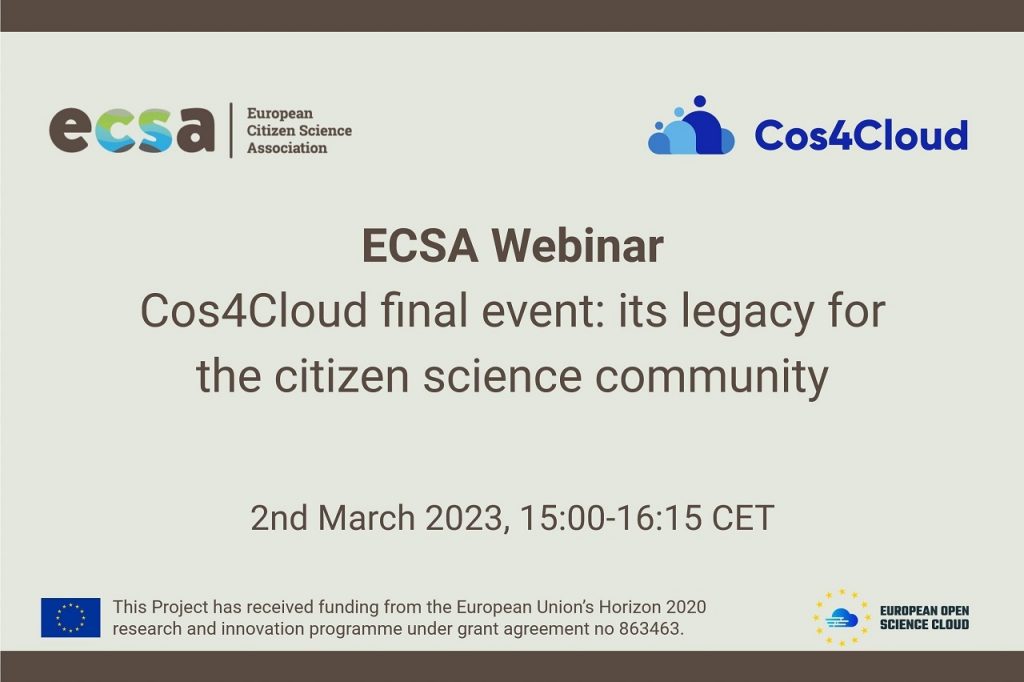The Cos4Cloud project is coming to an end! To wrap up over three years of the project and its community, Cos4Cloud and ECSA are co-organising a final event for everyone interested to learn about the project’s main achievements, discover how to use Cos4Cloud’s products and celebrate the community that has actively contributed to the project. The event will take place on 2nd March 2023, 15:00-16:15 CET.

What can you expect during the event?
- Learn about the main project achievements and legacy of the project for the citizen science community
- Discover how you can take advantage of Cos4Cloud’s products and outputs and where to find them (13 services to improve citizen observatory technologies, the co-design methodology guide, the educational guideline, etc.)
- Celebrate the community that has actively participated in Cos4Cloud events to improve the services, the co-design methodology, and to learn how to integrate citizen science into school practice.
Agenda
- [15:00- 15:05] Welcome & agenda
- [15:05-15:30] Present the project’s main legacy for the citizen science community and the EOSC. Presentation by Jaume Piera, the Cos4Cloud coordinator, ICM-CSIC researcher & CREAF associate researcher.
- [15:30-16:00] Celebrating our community: what our community took from Cos4Cloud? Members from the Cos4Cloud community will present their experience with the project.
Community members’ speakers:
– Introducing citizen science into the school practice by Matrona Pappa, a Physical Education teacher in Primary Education and a PhD candidate in Environmental Education at the Environmental Education Lab (EEL) at the National and Kapodistrian University of Athens (NKUA).
– How could FASTCAT-Edge and FASTCAT-Cloud improve camera trap users’ experience? – FELIS group experience by Marc Vilella, field technician at the Natural Sciences Museum of Granollers and Catalan Institution of Natural History (ICHN) member.
– ‘Seeing Stars Leiden’ initiative: how MOBIS contributed to storing and displaying light measurements on a map? by Margaret Gold, the Citizen Science Lead within the Open Science Programme of Leiden University and Coordinator of the Citizen Science Lab.
– Do-it-yourself air quality sensors: the experience of the Waira Network in La Ceja Antioquia (Colombia) by Vladimir G. Toro Valencia, professor in the Department of Marine Sciences (Academic Environmental Corporation) at Antioquia University. Waira is a citizen science project that uses mobile and static sensors to measure air quality with mobile phones and low-cost technology.
- [16:00-16:15] Q&A
Event co-organised with the European Citizen Science Association (ECSA).

















